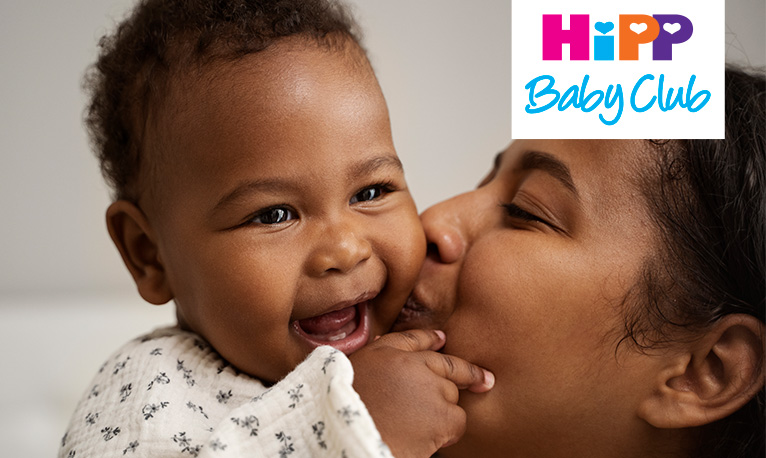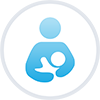Foods to avoid during pregnancy
Pregnancy |From the moment you know you’re expecting, you’ll want to give your baby the best start in life. Eating a healthy, varied diet is one way to help. But not all foods are good for your developing little one. In fact, some can be harmful.
There are a number of foods to avoid during pregnancy. And some very good reasons why.
Certain foods may carry bacteria which can cause infections such as listeriosis or toxoplasmosis, which can be harmful to your unborn baby. While the risk of catching these may be low, you might want to cut them out of your pregnancy diet, just to be on the safe side.
Hygienic food preparation is another way to keep yourself safe. Simple things like washing fruit and veg before eating them, keeping utensils, work surfaces and your hands clean, and using separate knives and chopping boards for raw meats, all help.
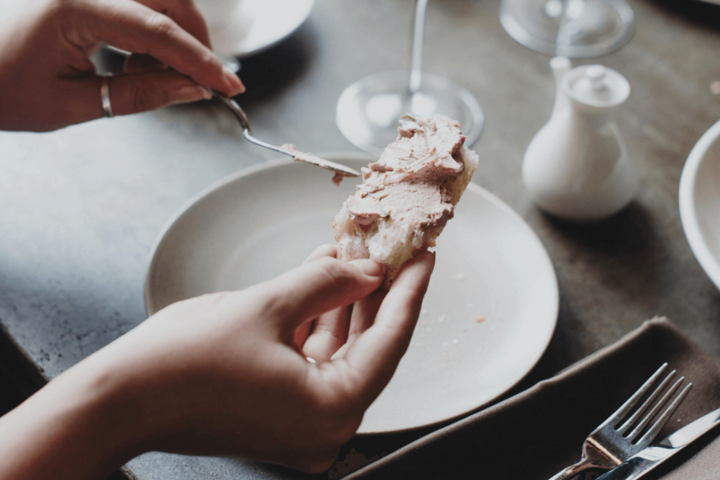
Foods to be careful with – or avoid completely
Most food and drinks are safe to have during pregnancy. But there are a few exceptions...
Dairy:
Big on blue cheese? Sorry, unpasteurised dairy foods may contain listeria. These bacteria can cause listeriosis, an infection that can lead to miscarriage, stillbirth, or make your newborn baby unwell.
Avoid:
- Mould-ripened soft cheeses with a white coating on the outside, like brie, chèvre or camembert - unless they’re cooked until steaming hot.
- Soft blue cheeses, like gorgonzola, Roquefort or Danish blue - unless they’re cooked until steaming hot.
- Unpasteurised cows' milk, goats' milk or sheep's milk - or foods made from it, such as soft goats' cheese.
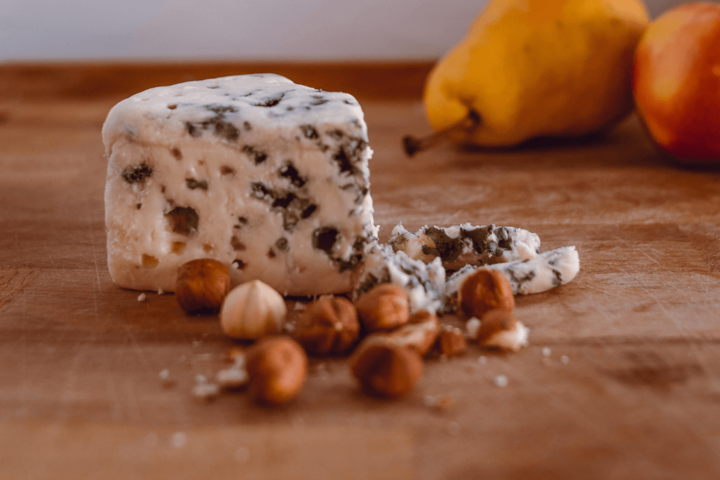
Meat & poultry:
Love a little liver? Not while you’re pregnant. Liver contains high levels of vitamin A, which can be harmful to your unborn baby. Steer clear of raw and undercooked meat. These carry the risk of toxoplasmosis, which can lead to miscarriage.
Be careful:
Cold, cured meats, like salami, chorizo, prosciutto and pepperoni – unless thoroughly cooked.
Avoid:
- Liver and liver pâté.
- All types of pâtés - even vegetarian varieties.
- Raw or undercooked meat.
- Game, like goose, pheasant and partridge (these may contain lead shot).
Eggs:
Soft boiled egg and soldiers for brekkie? Not unless your eggs have the British Lion stamp on them. Eggs without the stamp carry a bigger risk of having salmonella – which could give you food poisoning.
Avoid:
- Raw or partially cooked eggs (unless they’re British Lion) Duck, goose or quail eggs – unless they’re hard boiled (solid white and yolk).
Fish & shellfish:
Craving tuna? Watch how much you eat. This yummy fish is high in mercury, which can harm your unborn baby. Raw shellfish, like oysters, contain harmful bacteria and toxins that can make you unwell or give you food poisoning.
Be careful:
- Oily fish – limit salmon, trout, mackerel and herring to two portions a week.
- Tuna – limit fresh tuna to two portions a week, or four medium size cans a week. Tuna doesn’t count as an oily fish. So, you can have two (or four, depending on the type) lots of tuna a week plus two lots of oily fish.
Avoid:
- Swordfish, marlin, shark and raw shellfish.
Caffeine:
Caffeine should be limited to 200mg a day during pregnancy. That’s about the same as two mugs of instant coffee or two- and a-bit mugs of tea.
Alcohol:
Drinking alcohol while you're pregnant can cause long-term harm to your baby. So, it’s safest to avoid alcohol completely. Herbal teas: Limit these to four cups a day. Vitamins: Avoid high-dose vitamin supplements or any supplements containing vitamin A, which can be harmful to your unborn baby.
Herbal teas:
Limit these to four cups a day.
Vitamins:
Avoid high-dose vitamin supplements or any supplements containing vitamin A, which can be harmful to your unborn baby.
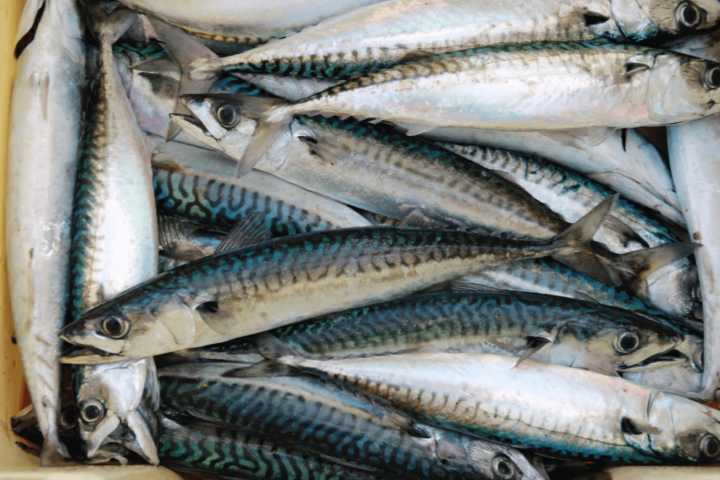
Good food groups for pregnancy
Now you know which foods to avoid, here’s a quick overview of the things you should include in your pregnancy diet...
Fruit & veg:
Remember to eat your five-a-day. Fruit and veg are full of vitamins, minerals and fibre – perfect for keeping you regular!
Starchy foods (carbs):
Bread, potatoes, pasta, rice, noodles... starchy foods are an important source of energy. Better still, opt for wholegrain or higher-fibre options to aid digestion and help keep things moving. (Constipation can be a common health problem in pregnancy!)
Protein:
Eating protein-rich foods such as meat, fish, beans, pulses and nuts every day can help support the growth of your baby’s tissues and organs.
Dairy:
Milk, cheese, fromage frais and yoghurt are good sources of calcium (and other nutrients) for you and your growing baby.
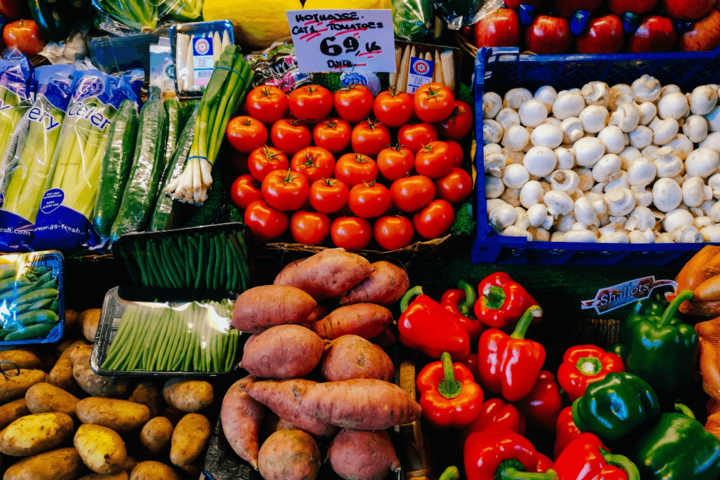
For more articles, tips and pregnancy advice, head to our Advice Hub. From weight gain to weaning advice, you’ll find all sorts of interesting information for every stage of your parenting journey.
Reference material: https://www.nhs.uk/pregnancy/keeping-well/have-a-healthy-diet/

